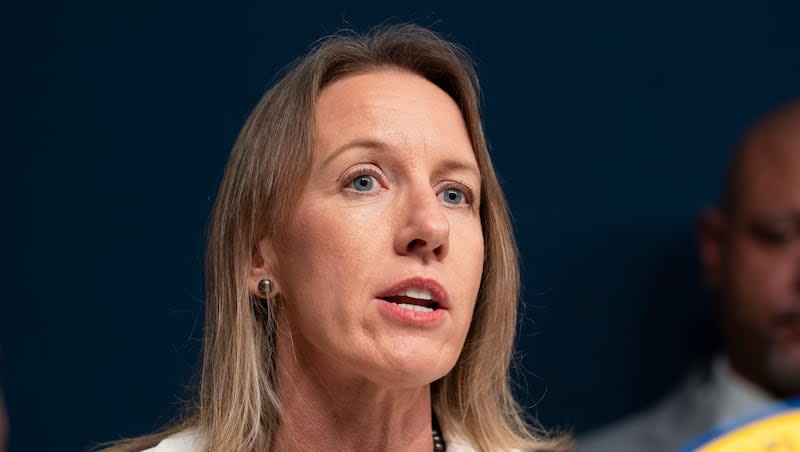California senator proposes bill to expand assisted suicide

- Oops!Something went wrong.Please try again later.
A California state senator has introduced a bill to expand access to assisted suicide in the state.
While the law currently states that in order to qualify for assisted suicide, a person needs to have a “terminal disease,” Sen. Catherine Blakespear is proposing the language to change to “a grievous and irremediable medical condition.”
According to a fact sheet about the bill, “a grievous and irremediable medical condition” would have to meet the following criteria: a person would need to be “in a state of irreversible decline in capability” due to illness, a person would have to have physical or psychological suffering that they haven’t been able to relieve and “it is reasonably foreseeable that the condition will become the individual’s natural cause of death.” It would broaden eligibility.
In addition to changing that language, the bill would also expand aid-in-dying medication “to those with early to mid-stage dementia.” The bill would also remove the 48-hour waiting period in between oral requests and the California residency requirement.
The End of Life Option Act was challenged by a suit filed in April 2023. Disability rights groups, including the Institute for Patients’ Rights and Not Dead Yet, filed a suit against state officials, saying that the law discriminates against people with disabilities. The suit states that people with disabilities often face barriers to medical care and with the act as law, people with disabilities may be coerced into assisted suicide.
Matt Valliere, executive director of the Patients’ Rights Action Fund and Institute for Patients’ Rights, wrote in an opinion article for The Hill, “California law creates even more unequal treatment for people with disabilities, puts us at greater risk of coercion, and makes us more vulnerable to a system preventing access to the care we need.”
Nathan Fairman, psychiatrist and palliative care doctor at UC Davis Health, told NPR, “Having a disability would not qualify an individual for aid in dying. Someone who’s disabled and has end stage cancer could potentially qualify, and they would have to step through all of the safeguards that are set out in the law.”
California implemented assisted-suicide for the End of Life Option Act in June 2016. Between then and 2022, there have been 3,349 people who have died by assisted suicide and 5,168 total prescriptions written. From 2021 to 2022, there was the largest increase recorded of deaths from assisted suicide: 522 in 2021 and 853 in 2022, according to California state data.
The majority of people who have died by assisted suicide had cancer, followed by people who had cardiovascular disease.

